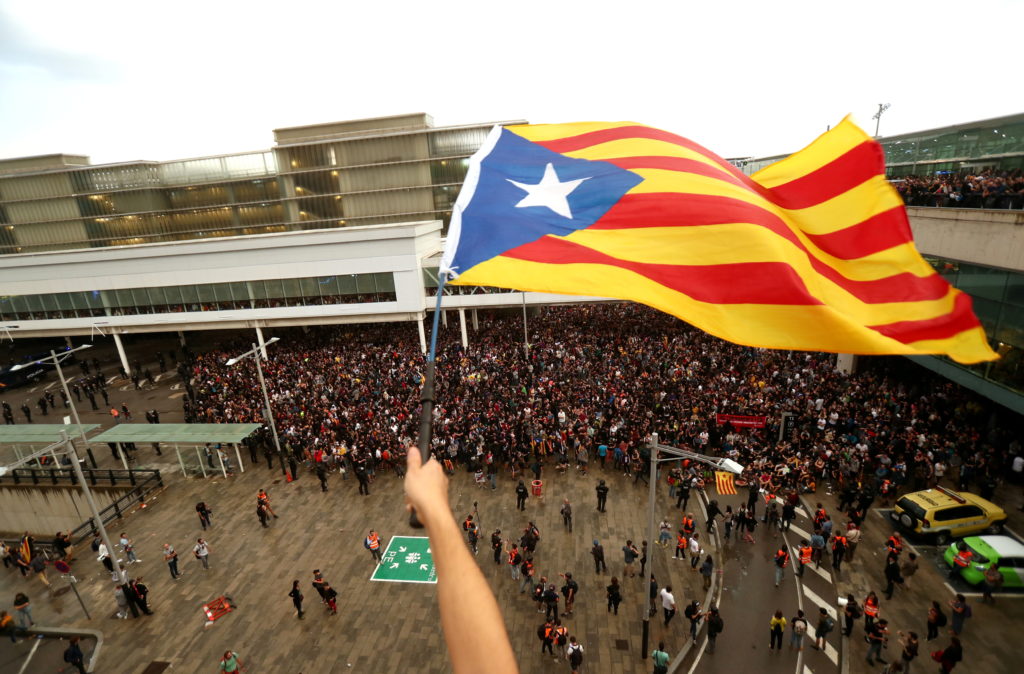MADRID (AP) — Nine Catalan separatist leaders jailed for sedition were eyeing freedom Wednesday, after Spain’s Cabinet pardoned them in the hope of starting what Prime Minister Pedro Sánchez called a much-needed reconciliation in the country’s restive northeast.
“The government has taken the decision because it is the best decision for Catalonia and the best decision for Spain,” Sánchez said in a short, nationally televised appearance. “We hope to open a new era of dialogue and build new bridges.”
Former Catalan vice president Oriol Junqueras, who in 2019 got the heaviest sentence of 13 years in prison for sedition and misuse of public funds, will go free along with his associates after spending three-and-a-half years behind bars.
READ MORE: Trial of Catalan separatists begins in Madrid amid protests
The other eight included the former Cabinet members of the Catalan government, the former Speaker of the Catalan Parliament, and two leaders of separatist civil society groups who had all received sentences ranging from nine to 12 years.
The pardons lifted the remaining years of their prison terms, while keeping intact their status as being unfit to hold public office.
It is not clear when they will be let out, but that would likely be in the coming days, or even hours.
The government said the pardons could be revoked if their beneficiaries try to lead another breakaway bid or commit a serious crime.
“These pardons do not depend on their recipients renouncing their ideas, and nor do we expect them to do so,” Sánchez said. “But these people were never put in prison for the ideas they hold, but rather for having violated the laws of our democracy.”
While Junqueras has recently said that he will dedicate his efforts to securing an independence referendum that would be authorized by Madrid, none of the main separatist parties in Catalonia have budged from their goal of carving out a new state.
The pardons have been opposed by Spain’s right wing — as well as by many on the left — becoming a risky political gamble for Sánchez, the Socialist leader.
But his minority left-wing coalition needs the Catalan legislators’ support to pass new budgets and significant laws. And the prime minister has insisted that a hardline approach and inaction by previous conservative administrations have not solved the deepening conflict.
Europe’s leading human rights body, the Council of Europe, backed the pardons in a resolution passed by its assembly late on Monday. But the non-binding recommendations also chided Spain for curtailing the free speech of the Catalan politicians. Spain’s Foreign Ministry responded by saying that the separatists were convicted by independent courts for breaking laws and not for just expressing their desire for independence.
WATCH: What’s behind the Catalan movement for independence
Tensions over a desire for secession in the Catalan-speaking region of 7.5 million grew in earnest a decade ago amid recession-driven economic hardship and discontent with a conservative administration opposed to greater autonomy.
Matters came to a head in October 2017, when separatists passed a unilateral independence declaration based on the results of a referendum deemed illegal by Spain’s top courts. The vote was boycotted by the unionist side and was held amid a police crackdown to stop it.
Now, Sánchez is banking that their release can restore the confidence of some disaffected Catalans driven into the separatist camp over the past decade. Roughly half of Catalonia’s voters back pro-secession parties, while the other half votes for parties who want union.
“With this action, we materially get nine people out of prison, but we symbolically add millions and millions of people to coexistence,” the prime minister said on Monday in Barcelona, the Catalan regional capital, during a speech announcing the pardons.
Wilson reported from Barcelona, Spain.













































